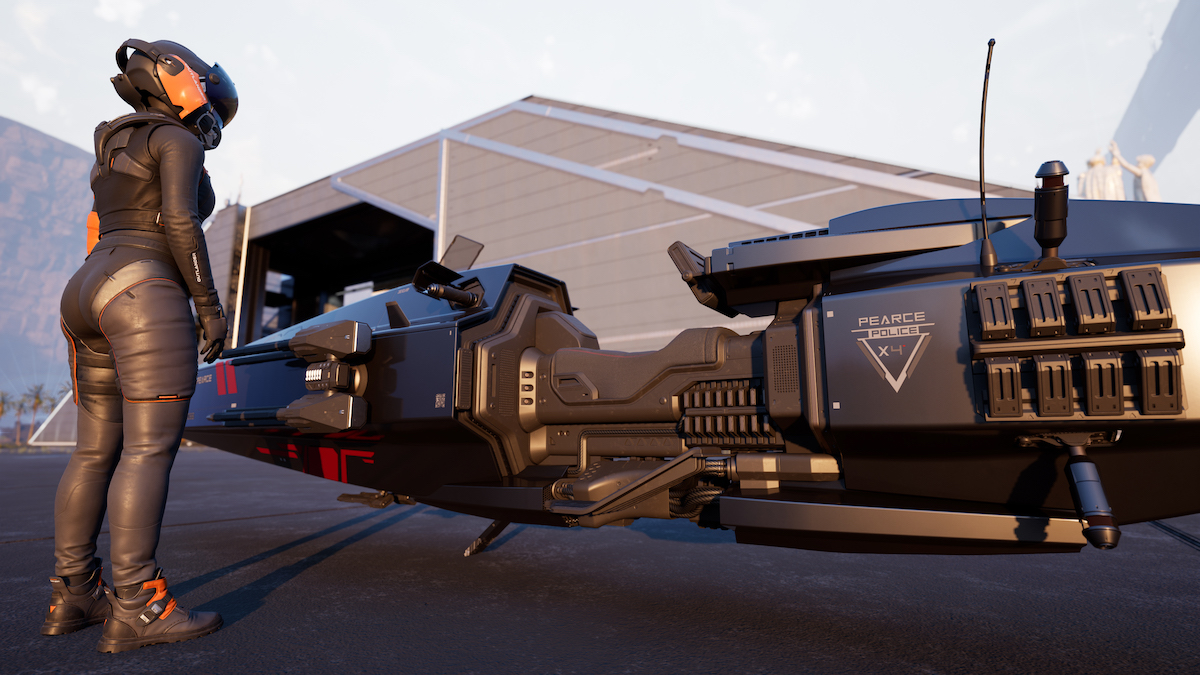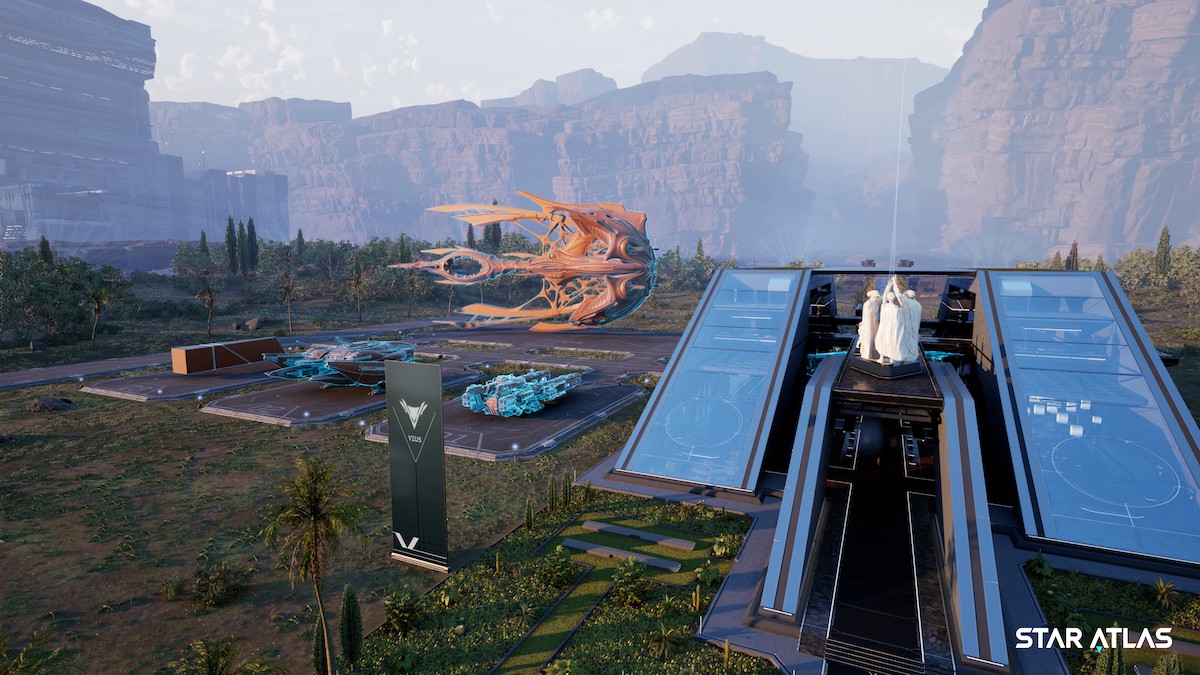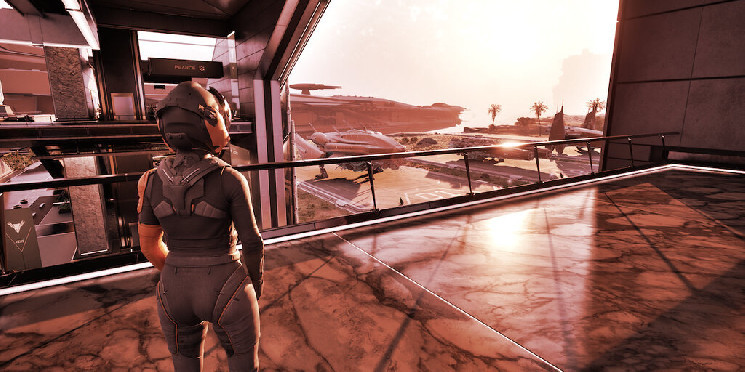Star Atlas is arguably one of the most ambitious NFT-driven games on the horizon, although it could be years before the Solana-based outer space strategy game fully takes shape. Eager players won’t have to wait that long to get a small taste, however: a limited demo has just been released via the Epic Games Store.
Launched today as part of a live-streamed event, Star Atlas: Showroom is a pre-alpha demo of the Unreal Engine 5 technology powering the game. It lets Star Atlas NFT owners explore a 3D environment and view the ships and vehicles in which they've invested.
Star Atlas is currently only offering access to people who own the NFTs: they can earn an access key by owning a ship and joining one of Star Atlas’ in-game factions. Michael Wagner, CEO and co-founder of Star Atlas developer ATMTA, told Decrypt that the demo also features a single non-NFT ship to explore, and that some access codes will be given to select non-owners.

Later this year, the Showroom demo will be expanded to include additional features, including multiplayer capabilities, chat functionality, and the ability for NFT holders to take their ships out for a flight. An NFT is a blockchain token that represents ownership of a unique item—in this case, digital spaceships and other vehicles that can be used in a video game.
In addition to launching its own first playable taste of Star Atlas, the developer also today released a toolkit to make it easier for other developers to bring their own Unreal Engine 5-based games to the Solana blockchain.

The Foundation Software Development Kit (F-KIT) is an open-source SDK that lets Unreal Engine 5 developers integrate the Solana blockchain, letting users sign transactions to complete in-game actions. Unreal Engine hails from Fortnite creator Epic Games, and is widely used across the video game industry, as well as for TV shows and movies.
Releasing the F-KIT as an open-source tool means that “mainstream studios,” as Wagner put it, “now have a faster path” to creating games on Solana. He said that other builders could also take the kit and extend it to other networks, such as Ethereum. For his team, however, it’s also a way to encourage others to “build experiences that extend the Star Atlas universe.”
Star Atlas made a number of other announcements today, including updates to its governance structure via a DAO and path to full decentralization of the game’s economy and ecosystem, as well as an upcoming digital graphic novel that establishes the lore for the sci-fi game.
Wagner explained that ATMTA is developing two different clients for Star Atlas: the glossier Unreal Engine 5 version that will be exclusively available through the Epic Games Store, and a simpler web-based WebGL version. All of the game functionality will be available through both versions, but the Epic Games Store version will require a gaming-capable PC to run.
The Epic Games Store is a popular platform for PC games, with over 194 million users claimed as of the end of 2021. And unlike its chief rival, Steam, the Epic Games Store is OK with games that utilize NFTs and blockchains, so long as they follow the platform’s regulations.
Just recently, Mythical Games launched the first NFT-based game on the platform: Blankos Block Party, a color online playground that the studio claims had more than 1 million total users before it hit the Epic Games Store. Another NFT-based game, Gala Games’ shooter GRIT, is also set to release via the same marketplace.
The Star Atlas: Showroom demo is just a light taste of the future, complete game experience, which sounds like a much more robust affair than your average crypto game today. Major games take time to develop—and in this case, Wagner envisions another five or six years of development on Star Atlas.
But the Showroom launch suggests the kind of incremental release schedule that ATMTA has in mind, Wagner said. The Showroom itself will gain more features by year’s end, and then by the end of 2023, the team plans to release a complete “vertical slice” of the game—that is, a fully functional (but limited) chunk of gameplay that shows what the full game should be like.
“We still have a long road ahead,” he said. “But the idea is to continuously release these iterative features so that you're constantly getting more engagement.”
 decrypt.co
decrypt.co
